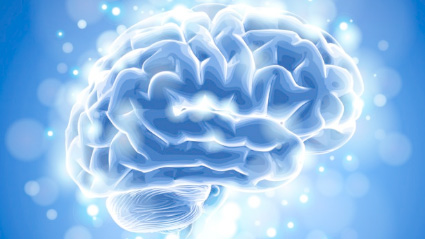Antioxidants to heal the brain in psychosis?
5 November 2018

The Centre for Psychiatric Neuroscience and the CHUV-Department of General Psychiatry have just published the results of a study suggesting the protective effects of antioxidant treatment on the brains of young adults suffering from psychosis.
For several years, the Centre for Psychiatric Neurosciences (CNP) and the General Psychiatry Department (PGE) of the CHUV have been conducting translational research on schizophrenia. Their alliance allows a scientific approach that includes laboratory experiments on the one hand, and the study of data collected from people with and without psychosis on the other. This translational approach allows us to explore the links between the difficulties encountered by patients and the biological mechanisms of the disease as they can be demonstrated in experimental models. Such a bed to bench concept is essential for a better understanding of the disease and the development of new treatments.
Prof. Kim Do Cuénod is a pioneer in this field. Twenty years ago, she highlighted the importance of oxidative stress, more particularly a glutathione deficiency – a very important antioxidant molecule for the brain – in the development of schizophrenia. Mice with deregulation of the redox system and suffering from high oxidative stress have abnormalities in brain connectivity at the synaptic level in the grey matter, but also in the white matter, in the axon beams that interconnect the different brain regions. Previous work conducted at the CNP has shown that these connectivity anomalies can be corrected with an antioxidant treatment based on N-acetyl-cysteine (NAC), a precursor of glutathione.
The results obtained in the laboratory led to a clinical trial with NAC in patients in the early phase of psychosis, conducted in collaboration with Prof. Philippe Conus (PGE). The results of this study, published in a first article last Oct. 2017 (Schizophrenia Bulletin), showed that adjuvant NAC treatment in young adults with psychosis increased the brain concentration of the antioxidant glutathione, while reducing some symptoms of the disease.
In this new article published in Translational Psychiatry, Dr Philipp Baumann (CNP and PGE), Dr Lijing Xin (EPFL), Dr Paul Klauser (CNP and CHUV University Department of Child and Adolescent Psychiatry) and their colleagues observed through brain MRI data that during this treatment with NAC, white matter, which contains axon beams and is altered in schizophrenia, see some of its properties recover. In addition, the degree of recovery of white matter is associated with the degree of cerebral glutathione increase induced by NAC, suggesting a causal relationship.
Although several studies have already demonstrated the positive effects of NAC on symptom reduction in patients with schizophrenia, this study is the first to highlight changes in brain connectivity in patients induced by NAC, thus corroborating previous results obtained in the animal model.
Author : Paul Klauser, CHUV-News (FR) >
Translation : Tania Secalin with the help of Deepl.com
Reference :
Klauser P, Xin L, Fournier M, Griffa A, Cleusix M, Jenni R, Cuenod M, Gruetter R, Hagmann P, Conus P, Baumann PS, Do KQ;
N-acetylcysteine add-on treatment leads to an improvement of fornix white matter integrity in early psychosis: a double-blind randomized placebo-controlled trial.
Translational Psychiatry 8(1):220, Oct 2018. doi:10.1038/s41398-018-0266-8 >
